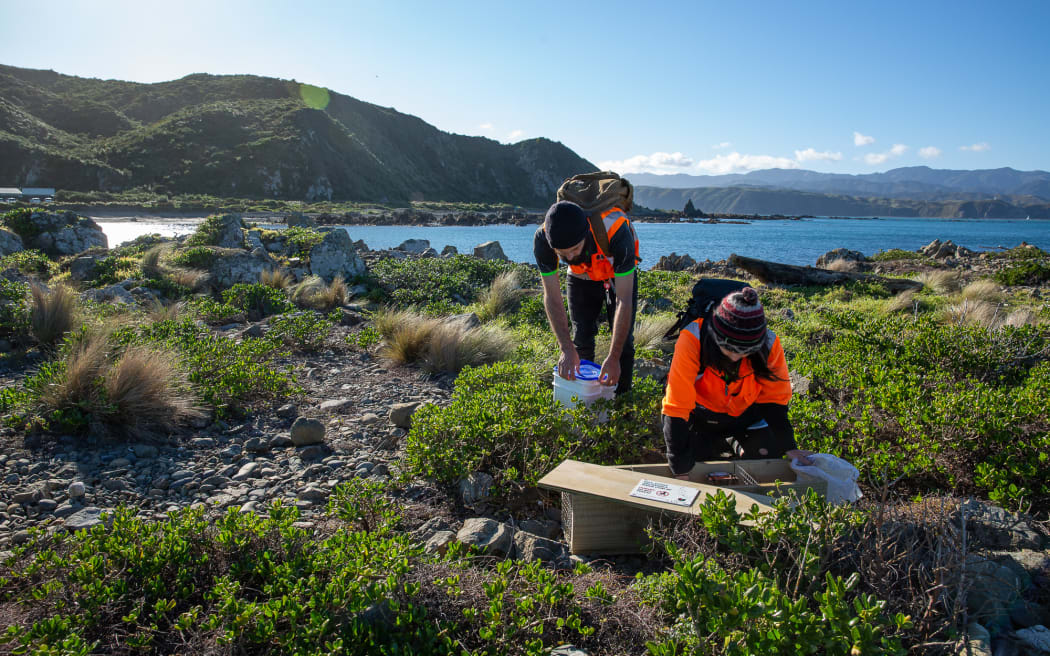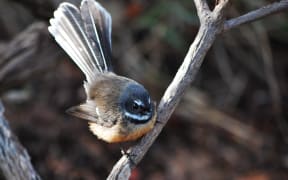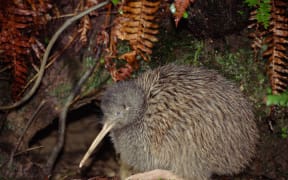
Predator-Free Wellington staff check bait stations and traps on Miramar's south coast. Photo: Ian Robertson Photography Ltd./ Predator-Free Wellington
Rats, stoats and weasels have been eliminated from the Miramar Peninsula in the capital.
Predator Free Wellington has celebrated the massive milestone and thanked 20,000 peninsula residents for their support.
Project director James Wilcox told RNZ there are a number of biosecurity systems in place that show the predator count has reached zero.
"There's basically a camera on every hectare of Miramar so it's an incredibly intensive grid of cameras that are paired with a mayonnaise lure that pumps out a bit of mayonnaise every night. There's over 450 of those and they're not recording any rat data at all.
"Then we have our bait stations and traps, we have 11,000 of those, we're not getting any rats in traps or any bait taken so that also tells us we're at zero".
There were also other detection systems, including a predator dog team, he said.
Miramar resident and volunteer trapper Dan Henry said there had already been great improvements in the native wildlife in Miramar.
"We've already seen a 71 percent increase in native bird detections, including a 500 percent increase in pīwakawaka and a 340 percent increase in riroriro. Mokomoko (lizards) and wētā populations have also increased significantly."
Wilcox said the biosecurity systems currently in place in Miramar would have to be maintained.
"That's the nature of elimination on the mainland. We're not an offshore island and we don't have a Trump-style huge fence that separates Miramar from the rest of the city. We are going to have to maintain that vigilance in perpetuity."
He said the next phase of the project covered the area between Island Bay and the city, which would help give Miramar more of a buffer against pests.
Predator Free 2050 head Rob Forlong said the Wellington project proved urban environments could be pest free with the right methods in place.
"Not only do we now have a better understanding of the technology and resources needed to reach our predator free 2050 goal in urban environments, but we've also learnt how to make significant cost efficiencies, with cost reductions of up to 75 percent per hectare achieved by Predator Free Wellington."




